
Welcome to the Chest Pain Information Hub of Best Cardiac Hospitals, your trusted resource for understanding one of the most common yet concerning health symptoms. Chest pain is often alarming and should never be ignored, as it can signal serious underlying conditions, particularly those related to the heart. However, it is important to note that not all chest pain stems from heart-related problems; other potential causes include issues with the lungs, digestive system, muscles, or even stress and anxiety. This page aims to equip you with the knowledge needed to differentiate between these causes and seek appropriate care.
Cardiac Arrest is a broad term that describes any sensation of discomfort, pressure, or pain experienced in the chest area. It can present in various forms, from a sharp, stabbing pain to a dull, aching discomfort. The severity and duration of chest pain can vary widely—it may last only a few seconds or persist for hours or even days. The pain might remain localized or radiate to other parts of the body, such as the arms, neck, jaw, or back. This variability in symptoms underscores the importance of understanding the nature and potential causes of chest pain.
While chest pain is often associated with heart-related issues like angina or heart attacks, it is not always indicative of a cardiac problem. It can result from a wide range of conditions, including respiratory disorders (like pneumonia or pulmonary embolism), gastrointestinal issues (such as acid reflux or esophageal spasms), musculoskeletal problems (like rib fractures or muscle strain), or even stress and anxiety. Given the potential seriousness of some causes, chest pain should always be taken seriously and evaluated promptly by a healthcare provider to determine the underlying condition and ensure appropriate treatment. Understanding the various characteristics of chest pain—such as its location, type, and associated symptoms—can provide critical clues for accurate diagnosis and effective management.
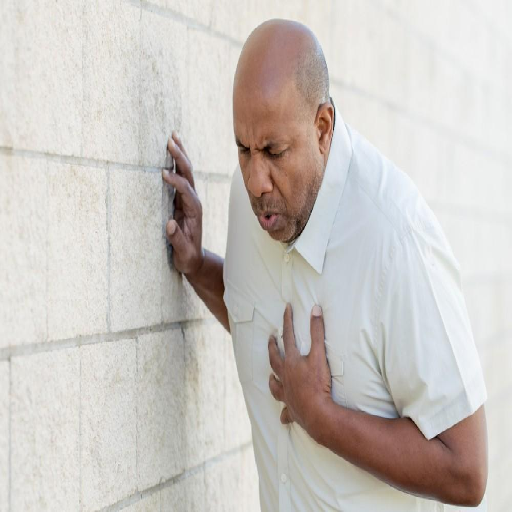
Chest pain can arise from various causes, and understanding its origin is essential for accurate diagnosis and effective treatment. Below are the primary types of chest pain categorized by their origin:
This type of pain is related to heart conditions such as angina, heart attack, or pericarditis. It often manifests as a squeezing, pressure-like sensation in the chest that may radiate to the arms, shoulders, neck, or jaw. Cardiac chest pain is commonly triggered by physical exertion, emotional stress, or underlying coronary artery disease. Immediate medical attention is critical for cardiac-related chest pain.
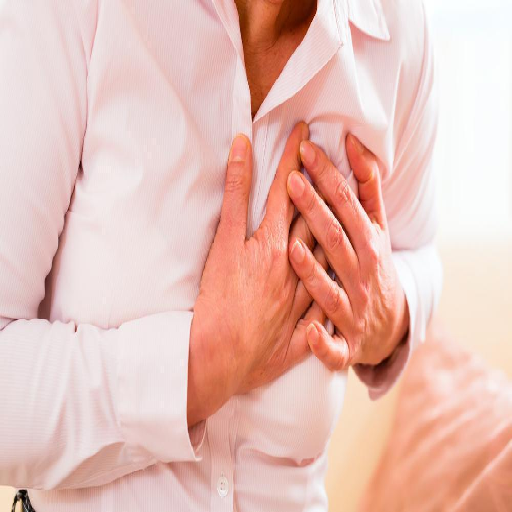
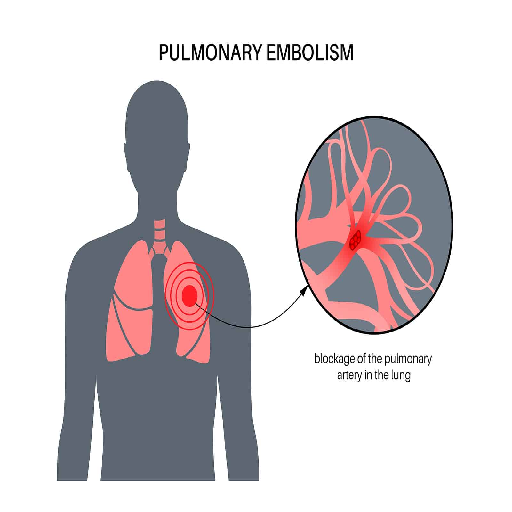
Chest pain originating from the lungs is often sharp and worsens with breathing or coughing. Conditions like pulmonary embolism, pleuritis (inflammation of the lung lining), or a collapsed lung (pneumothorax) can cause this type of pain. Pulmonary-related chest pain is typically accompanied by symptoms like shortness of breath, rapid breathing, or a persistent cough.
Pain from the digestive system can mimic cardiac pain but is usually associated with conditions like acid reflux (GERD), esophagitis, or peptic ulcers. This type of pain may feel like a burning sensation in the chest, often occurring after eating or when lying down. It may also be accompanied by nausea, bloating, or difficulty swallowing.
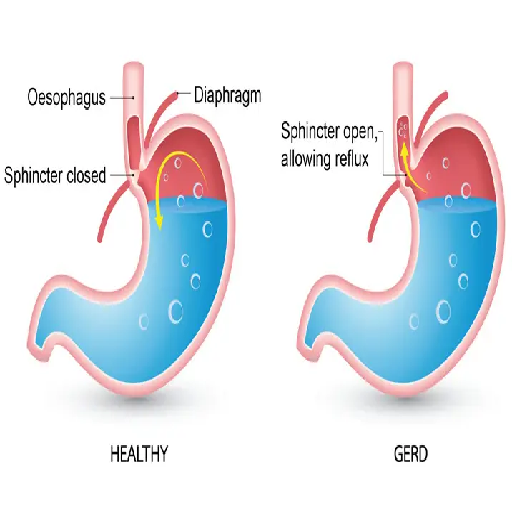
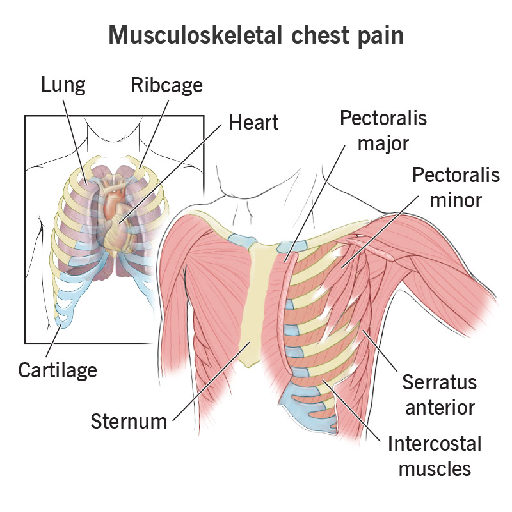
This pain arises from muscles, bones, or joints in the chest wall. Common causes include muscle strain, costochondritis (inflammation of cartilage connecting the ribs to the sternum), or trauma to the chest. Musculoskeletal chest pain is usually localized, sharp, and exacerbated by movement or pressure on the affected area.
Neurological or psychogenic chest pain is linked to conditions like nerve compression, shingles (herpes zoster), or anxiety disorders. Anxiety or panic attacks can cause chest tightness, palpitations, and a sense of impending doom, often mistaken for a heart attack. This type of pain is generally transient and may be relieved with relaxation techniques or addressing the underlying psychological factors.
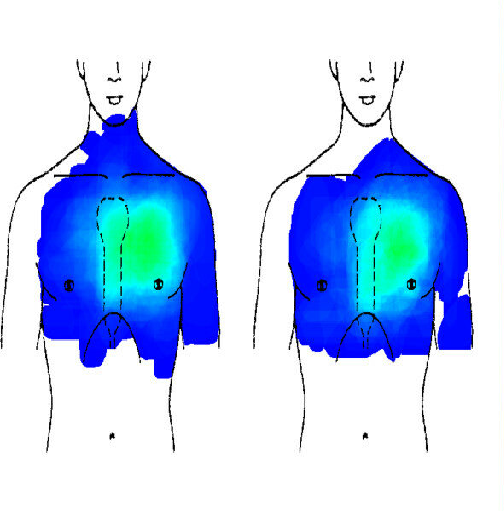
Chest pain has many potential causes, which can be broadly classified into heart-related causes and non-heart-related causes.
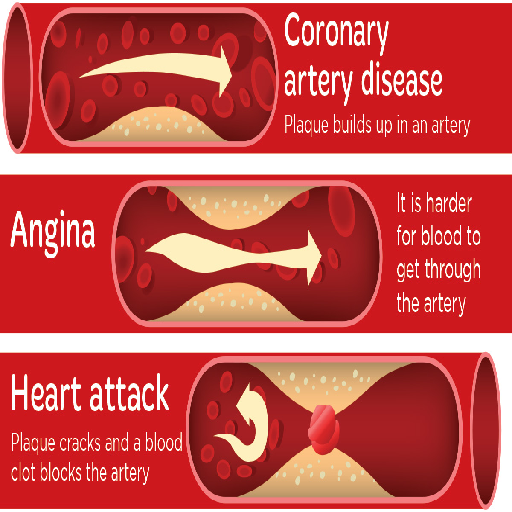
Angina: Chest pain caused by reduced blood flow to the heart, often triggered by physical activity or stress.
Heart Attack: A complete blockage in the coronary arteries, causing severe chest pain.
Pericarditis: Inflammation of the sac-like membrane surrounding the heart, resulting in sharp or stabbing pain.
Aortic Dissection: A rare but life-threatening condition where the inner layer of the aorta tears, causing sudden, severe pain.
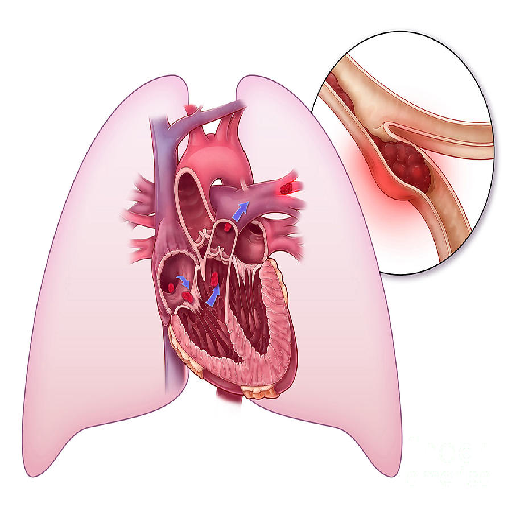
Pulmonary Embolism: A blood clot in the lungs causing sudden chest pain and difficulty breathing.
Pneumonia: Infection in the lungs leading to sharp pain, especially during deep breaths.
Pleuritis : Inflammation of the lung’s lining, causing pain that worsens with breathing or coughing.
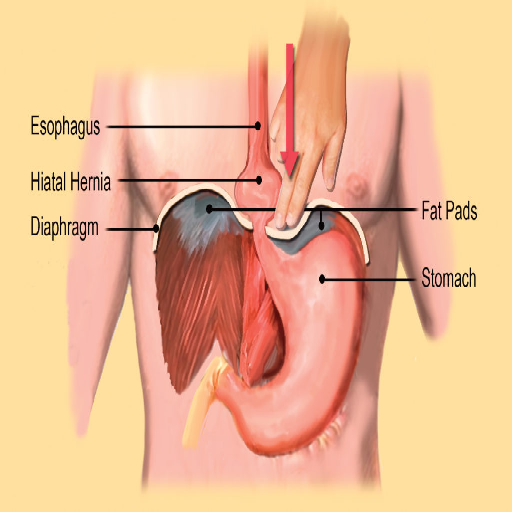
Gastroesophageal Reflux Disease: Acid reflux causing burning pain or discomfort in the chest.
Esophageal Spasms: Infection in the lungs leading to sharp pain, especially during deep breaths.
Hiatal Hernia : A condition where the stomach bulges into the chest cavity, causing discomfort.
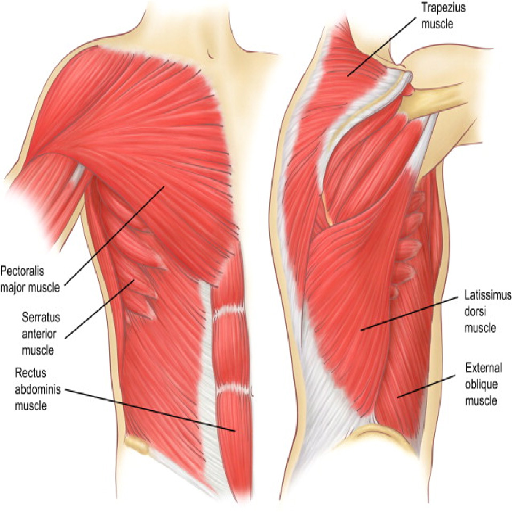
Costochondritis: Inflammation of the cartilage connecting the ribs to the breastbone, causing localized pain.
Muscle Strain: Overuse or injury to chest muscles leading to soreness or sharp pain.

Panic Attacks: Intense anxiety episodes causing chest tightness, rapid heartbeat, and shortness of breath.
Stress: Chronic stress can manifest as chest pain, often mistaken for a heart issue.
Chest pain caused by heart problems often has distinct characteristics and accompanying signs:

Feels like a heavy weight or squeezing sensation.
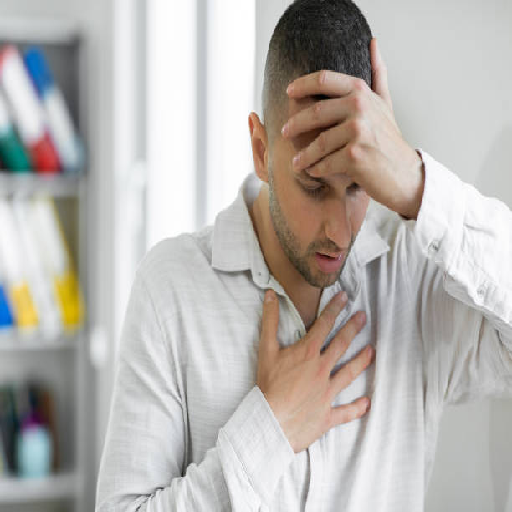
Difficulty breathing, even at rest or with minimal exertion.

Sudden, clammy skin is a classic sign of a heart attack.
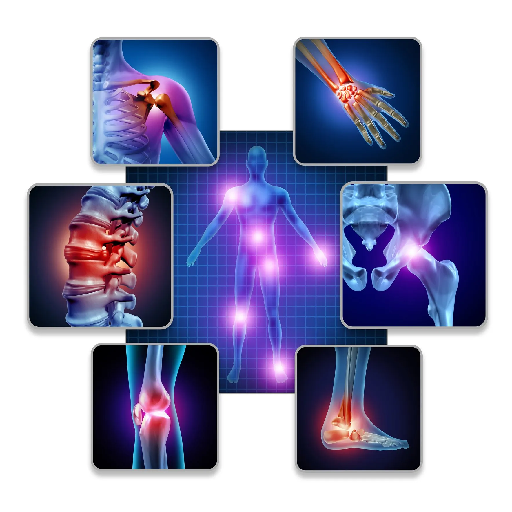
Pain spreading to the arms, neck, jaw, or back.
The treatment for chest pain varies widely based on its underlying cause, as it can stem from heart-related, gastrointestinal, lung-related, musculoskeletal, or other issues. Here's a detailed explanation of the main approaches to treating chest pain:
Prevention begins with maintaining a healthy lifestyle and managing risk factors. Here’s how:

Include plenty of fruits, vegetables, whole grains, and lean proteins.

Smoking damages blood vessels and increases the risk of heart-related chest pain.

Use techniques like deep breathing, mindfulness, or professional counseling.
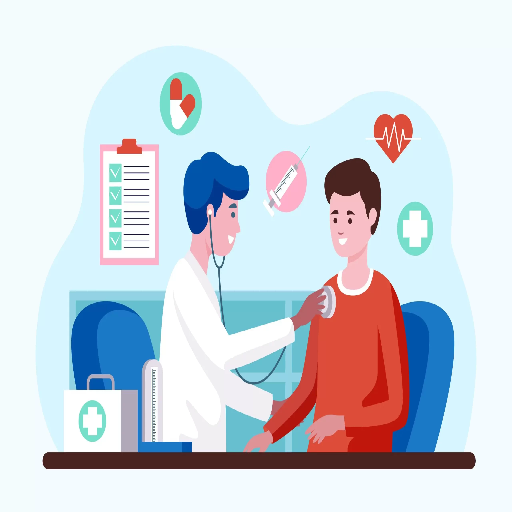
Early detection of health problems can prevent serious complications.
Chest pain is a critical warning sign that demands attention, as it may indicate an underlying health condition, ranging from minor issues to life-threatening cardiac problems. At Best Cardiac Hospitals, we recognize the urgency and complexity of managing chest pain. Whether you're currently experiencing discomfort or taking proactive steps to maintain your heart health, our mission is to provide expert guidance, state-of-the-art diagnostic tools, and comprehensive care tailored to your needs.